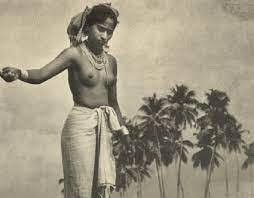"Lipstick Under My Burkha"
TW: Marital Rape
----------
This week we read about the SlutWalk protests from the reading "SlutWalk: Feminism, Activism, and Media" by Kaitlynn Mendes. We discussed how one cannot directly hold the organizers of a movement/protest responsible for how it gets received or how it is perceived by the mainstream media. Since part of the meaning of the protest is created by its media coverage - how it gets shown by the media, how it gets reflected upon by different communities, etc. - you cannot predict all of that while planning a movement. This reminded me of some of the attempts at making feminist films in Indian cinema (Bollywood specifically). The reactions of the censor board, and the audience, have not been exactly how the filmmakers had intended/anticipated.
One movie, in particular, comes to mind - "Lipstick Under My Burkha (2016)".
This film presents us with portraits of four lower middle-class women from a small town in Bhopal who are connected through the same communal living space and relatives. As the film progresses, we see how all of them feel confined by the patriarchal rules in their everyday life.
One of the women is Shirin, she feels imprisoned in her marriage life because her husband sees her only as a sex object and there are several indicators of marital rape throughout the film. The second woman, Usha, is an old matriarch of the communal living space, she is respected for her values and her leadership qualities. But the film chooses to focus more on her suppressed sexual desires which she tries to fulfill through audio porn/ erotic novels and by joining a swimming class because she has a crush on the young instructor.
The other two women are Leela and Rehana. Leela is a beautician who expresses her disinterest in the institutions of marriage, long-term monogamous relationships, and "settling down with a man" throughout her sexual encounters. Rehana, she is a college-going girl who feels confined by her religion and culture, she has to wear a burkha to college to "respect her family values". But as soon as she reaches the college, she always takes it off and we see her wearing modern ripped jeans and pop-funk tees - something she really likes. Throughout the film, we see how these women try to deal with their daily life situations by hiding their actual attire from the public, by lying about where they are going, or by hiding their erotic novels, sometimes by succumbing to societal pressure, etc. - all of this portrays realistic scenarios.
While some of the reviews described the film as "female empowering", "feminist" and "finally something focusing on women", the film majorly received a lot of criticism for being too focused on the "sexual lives" and on only "ladies' issues". The film was initially banned from being released in Indian cinemas by the film censor board. “The story is lady-oriented, their fantasy above life. There are contagious sexual scenes, abusive words, audio pornography, and a bit sensitive touch about one particular section of society.” - this was the initial review by one of the members of the censor board.
On the other hand, the film director, in one of her interviews, said, "There is nothing blasphemous about my film but women being honest about themselves, their desires, their bodies, wanting to have agency over themselves and their decisions and dreams is something they are not used to. Women are always looked at through the male gaze." The whole point was to step away from the male gaze and focus on the women's inner lives and desires for once.
This made me think about how the director's intentions and the way the film was received by the censor board were completely in opposition. The whole hype of this film being banned first and then released created a certain kind of stigma around it. The film came to be labeled as something "indecent" - almost putting it in the category of how mainstream media views porn. Some other important criticisms mentioned that the film was "bold" and the characters made "brave choices" but that does not make the film "feminist". To quote one of such reviews here - "The movie may be strong and funny when they are in their secret lives but they make almost no push for empowerment in their oppressive lives." Just because the women succumb to societal pressure or are still operating within the same "male gaze", does that already disqualify them from the category of being "feminist"? Just because the lipstick is "under" the burkha, and the burkha is still there, (meaning: just because the women are not explicitly revolting against the oppression through loud voices), does that make it unfeminist? Does a feminist film have the responsibility to show certain specific kinds of rebellion?
Was this film a feminist move? Showing very particular women's lives from a particular region of India, from a particular community, from a particular religion in a film, is this what makes a film feminist? Does it have the responsibility to be "all-inclusive"? Is this what makes a film "women empowering"? Or, was it the censor board's reaction that categorized the film as something other than "feminist"? Is this a strategy future feminist filmmakers should follow?
I am always left with more questions than answers.








Comments
Post a Comment